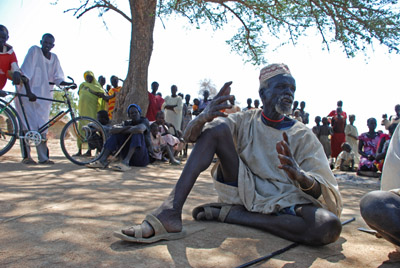
Long a banner issue for Sudan activists, the Darfur conflict now languishes in its eighth year, with at least 60,000 people newly displaced by fighting this year alone. Multiple rounds of peace talks since 2004 have produced agreements that have done nothing to bring security to the people of Darfur and in some cases “have actually made matters worse,” according to a new policy report by Enough.
“An equitable peace deal for all of Sudan, constitutional reform, and democratic elections should be the endgame, not competing processes that play into the hands of Khartoum’s divide-and-conquer strategy,” write Enough’s Omer Ismail, Laura Jones, and John Prendergast. The report, “How to Save Darfur’s Peace Process,” describes the failings of previous attempts at negotiating peace between the Sudanese government and numerous rebels groups, and it recommends a country-wide process to address grievances of Sudan’s multiple rebelling regions.
They write:
As conflict flares in South Kordofan and Blue Nile, and calls for overarching reform become increasingly common, the environment has become ripe for a shift in international strategy. Given the common denominator of marginalization that exists for all peripheral communities, the first priority moving forward should be a comprehensive and inclusive peace process that in the first phase would deal with all of Sudan’s warring regions collectively—rather than individually—and help put in place mechanisms to address national issues such as power and wealth sharing in Sudan. This process, which would include a constitutional conference followed by free and fair elections, should address a large number of the grievances being negotiated ineffectively at the regional level, if done equitably.
The second stage of the process, they propose, would address the remaining region-specific grievances of the various groups.
The report details some of the dynamics within the leadership of the mediation that have undermined the most recent Doha process. However, the authors go beyond presenting criticisms of the current actors; they also provide a checklist (page 6) that describes the must-have attributes of the mediator and pre-requisites of an inclusive process.
Read the full report: “How to Save Darfur’s Peace Process”
Photo: An elderly man from South Darfur, living in a community of displaced people in South Sudan (Enough/Laura Heaton)

